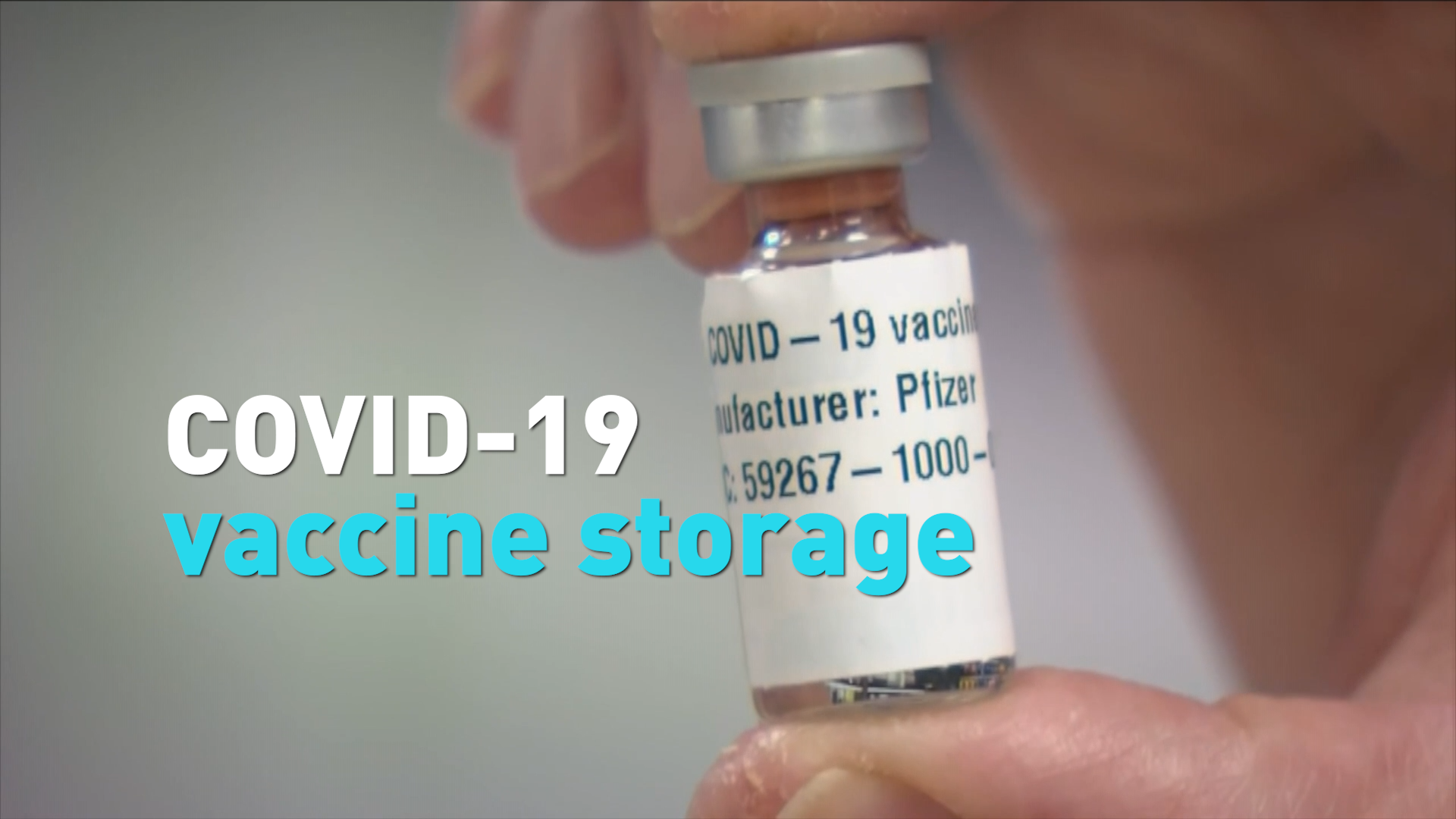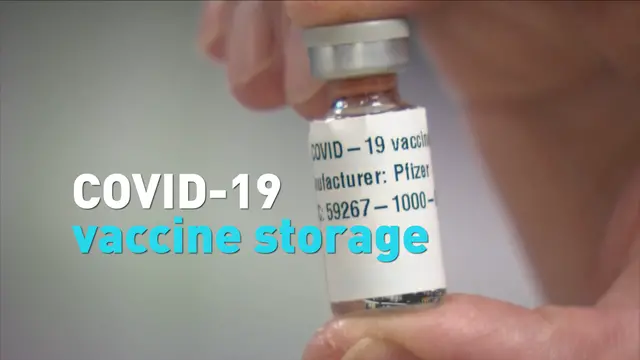02:42

North Suburban Medical Center in Thornton, Colorado is no stranger to administering vaccines, like the yearly flu shot.
"The logistics of getting the shot to a lot of people is really nothing new for us, we've done that for years," said Dr. Melissa Miller, the hospital's pharmacy director.
What's different, she said, is the ultra-cold storage the Pfizer-BioNTech vaccine requires. How cold is ultra-cold? Think Antarctica in the dead of winter. Minus 70 degrees Celsius. Anything warmer and this particularly fragile type of vaccine falls apart.
"It's like nothing we've seen before, right?" said Gina Moore with the University of Colorado's Skaggs School of Pharmacy. "So we need to account for that cold storage."
Using, she said, ultra-cold freezers for longer storage and shorter-term thermal containers packed with dry ice. Part of the new skill set health care providers have taken on during this pandemic.
"How to swap out that dry ice to make sure that we’re maintaining the right temperature for the vaccine and maintaining the integrity of the vaccine," Miller said, describing the challenge.
"It's not a hard thing to do," Moore added. "It's just making sure you follow those instructions quite carefully."
The cold storage issue has been a primary focus of exercises held in places like Colorado to simulate the distribution of the Pfizer vaccine, from as they say the loading dock to a patient’s arm.
"Our biggest concern is definitely making sure that, especially the limited quantities that we’re getting at the beginning, that no vaccines go wasted," said Brig. Gen. Scott Sherman, the director of Colorado’s Vaccine Distribution Task Force.
Vail Health Hospital is one of many medical facilities gearing up for the Pfizer drug which will arrive 975 doses per order and must be administered within five days once it's moved to a refrigerator.
"We've been spending the last couple of months in anticipation of a vaccine coming, including making sure that we had storage capability in our special freezers," said Will Cook, Vail Health’s C.E.O.
Until now, hospitals used those highly insulated freezers for tissue storage and medical research. Now, those devices are in extremely high demand.
"Our production has expanded significantly in the past three months," said Peter Binder, the German Binder refrigerator company C.E.O. "We are now at a clear three-digit percentage increase."
Ultra-cold freezers, which cost upwards of $20,000, may be too pricey for many medical facilities. They'll have rely on these thermal shippers and dry ice. Lots of it.
"You know we've all worked really closely with our vendors to make sure that we have a good supply chain and a strong supply chain and we've built up redundancy in that process," Miller said.
Soon vaccine administrators will learn whether those preparations have paid off as the Pfizer drug, and the cold storage principle, is put to the test.
Check out The China Report, our new weekly newsletter.
Subscribe here!
 简体中文
简体中文








